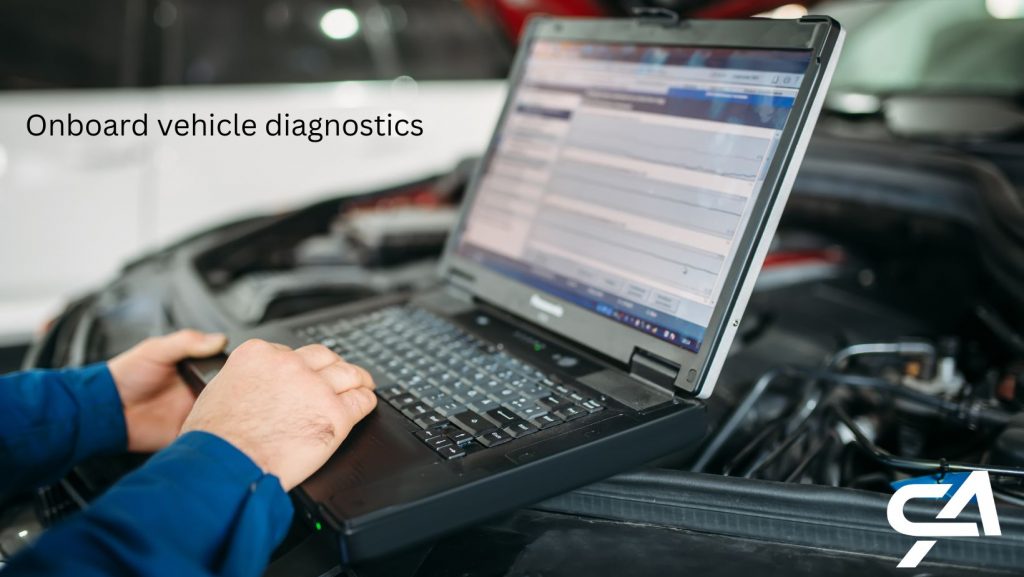Navigating Vehicle Health: A Comprehensive Guide to Diagnostic Services
Modern vehicles are equipped with complex systems and electronic components that contribute to their efficiency and performance. However, when issues arise, pinpointing the source of the problem can be challenging. This is where onboard vehicle diagnostics and services play a crucial role. In this blog, we’ll delve into the intricacies of diagnostic services, explain what they entail and why they are essential for maintaining the health of your vehicle.
Understanding Diagnostic Services: The Gateway to Vehicle Health
Diagnostic services involve the use of advanced technology to identify, analyze, and interpret issues within a vehicle’s various systems. These systems include the engine, transmission, brakes, electrical systems, emissions, and more. By utilizing diagnostic tools and software, technicians can access the onboard computer systems to retrieve error codes and other data that provide insights into potential problems.
Onboard Diagnostics (OBD): The Foundation of Vehicle Diagnosis
Onboard Diagnostics, commonly known as OBD, is a standardized system that monitors and reports the performance of a vehicle’s engine and other essential systems. OBD systems generate Diagnostic Trouble Codes (DTCs) when an issue is detected. Diagnostic services leverage these codes as a starting point for identifying and resolving problems.
Diagnostic Trouble Codes (DTCs): Decoding Vehicle Language
When a vehicle’s computer system detects an anomaly, it assigns a unique code to the issue. Diagnostic Trouble Codes provide a standardized language that technicians can interpret to understand the nature and location of a problem. DTCs cover a wide range of issues, from engine misfires to sensor malfunctions, facilitating efficient and accurate diagnostics.
Comprehensive System Scans: Identifying Hidden Issues
Diagnostic services involve comprehensive system scans that go beyond reading DTCs. Technicians use advanced diagnostic tools to perform in-depth scans of various vehicle systems, checking for abnormalities in sensor readings, performance parameters, and other critical data. This allows them to identify potential issues before they escalate.
Engine Diagnostics: Uncovering Powertrain Issues
Engine diagnostics are a specific subset of diagnostic services focused on the powertrain. This includes the engine, transmission, and related components. By analyzing engine data and performance metrics, technicians can diagnose issues such as misfires, fuel system problems, or issues with the exhaust system.
Transmission Diagnostics: Ensuring Smooth Shifts
Transmission diagnostics focus on the vehicle’s transmission system. Technicians use diagnostic tools to assess transmission fluid quality, monitor shift patterns, and detect issues such as slipping or harsh shifting. Early detection through transmission diagnostics can prevent costly repairs and extend the life of the transmission.
Electrical System Diagnostics: Resolving Wiring and Component Issues
Modern vehicles rely heavily on complex electrical systems. Diagnostic services for electrical systems involve pinpointing issues related to wiring, sensors, and electronic components. Technicians use multimeters and other specialized tools to identify faults, ensuring that the vehicle’s electronics operate seamlessly.
Emissions Diagnostics: Ensuring Environmental Compliance
Emissions diagnostics focus on the vehicle’s exhaust and emissions control systems. Technicians use diagnostic tools to assess the efficiency of the catalytic converter, oxygen sensors, and other components that contribute to emissions control. This is crucial for ensuring the vehicle complies with environmental standards.
Advanced Diagnostics for Specialized Systems: Addressing Vehicle Complexity
Some vehicles feature advanced systems such as anti-lock brakes (ABS), traction control, or advanced driver assistance systems (ADAS). Diagnostic services extend to these specialized systems, allowing technicians to identify issues and ensure the proper functioning of advanced safety and performance features.
Diagnostic services serve as the linchpin of modern vehicle maintenance and repair. By leveraging advanced technology and interpreting the language of Diagnostic Trouble Codes, technicians can swiftly and accurately diagnose issues across various vehicle systems. Regular diagnostic services not only aid in identifying and resolving problems but also contribute to the overall health, efficiency, and longevity of your vehicle. As vehicles become increasingly sophisticated, diagnostic services remain a cornerstone of proactive maintenance, allowing drivers to navigate the road with confidence and peace of mind.

